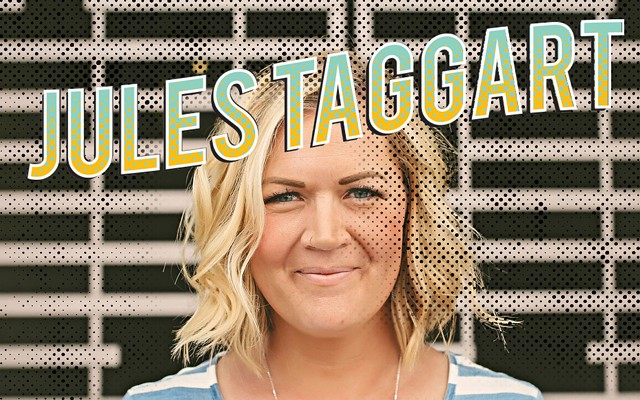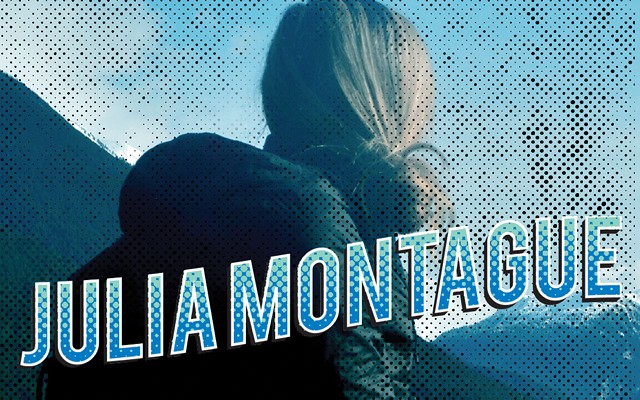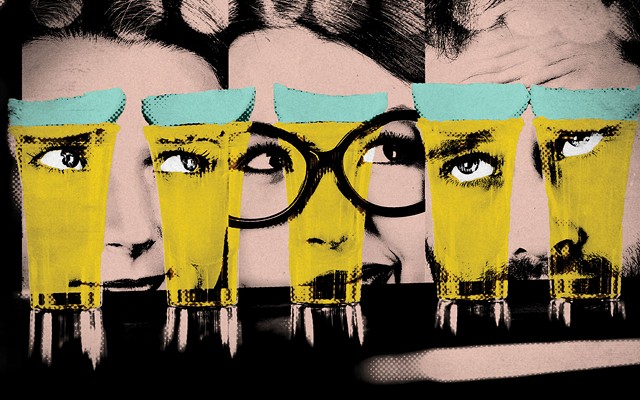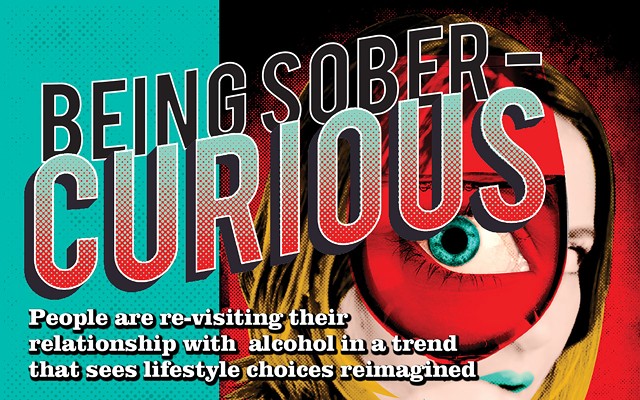FEATURE STORY – Pique Newsmagazine, May 30, 2019
People are re-visiting their relationship with alcohol in a trend that sees lifestyle choices reimagined
By Cathy Goddard
Jules Taggart started questioning how much she was drinking after she had two children and starting to work from her San Diego home-office. Because it was more difficult to get out, the 38-year-old digital marketing expert fell into a pattern of having wine at the end of her workday.
“Every morning I would wake up with a foggy head and say to myself that I wasn’t going to drink that day,” Jules says. “And then five in the afternoon would roll around and I’d pour a glass of wine and keep going until it wasn’t unusual to drink an entire bottle of wine in an evening.”
She shared her concern with friends but alarmingly, her network of moms admitted they drank the same amount while half-joking that they needed alcohol to get through the stress of parenting. The bottom line was she couldn’t ignore the negative impact drinking was having on her well being and last November, she embarked on a brief journey with sobriety that lasted only nine days. Deciding to have a glass of wine while watching election results for the U.S. mid-terms, she reverted to her old patterns of drinking for the next three days.
That was the breaking point. Jules acknowledged she had to take a leadership role in her life and that drinking was either all or nothing. She hasn’t had a drink since.
The start of her sobriety came with intense withdrawal symptoms in the form of anxiety and nausea, and a general obsession with the thoughts of drinking. After getting through that phase though, sobriety has made her feel more in control, eliminated her anxiety issues and provided great sleep and a clear brain with improved decision-making abilities.
THE RISE OF ‘SOBER CURIOUS’
It’s likely you have heard or read a similar story to Jules’. We have made it culturally acceptable to drink. Our social activities often revolve around alcohol: cocktails at the end of a workday; samples of alcohol to sip at the liquor store; “mommy juice” wine to take the edge off parenting pressure.
Even our obsession with self-care has been tainted with boozy themes—Prosecco and pedicures; vinyasa and vino; biking and beer tents.
However, this culture of acceptance around alcohol consumption is evolving a new paradigm and people are questioning how much they drink and the impact it has on their well-being. Whereas being sober has historically been reserved for alcoholics working through the whole 12-step program with zero tolerance to having a drink, there’s now a trend of people exploring what it means to venture out socially sans cocktails. Whether wanting to embrace an alcohol-free life as a commitment to their wellness or just being tired of events revolving around booze, people are abstaining in greater and greater numbers.
Granted, people jumping on the abstinence bandwagon isn’t new. Teetotalling is a common strategy to lose weight, train for an athletic challenge or as a New Year’s resolution, but sobriety is being rebranded in a trend that is gaining traction—being “sober curious.”
The term “sober curious” was coined by Ruby Warrington, author of the popular new book titled, Sober Curious: The Blissful Sleep, Greater Focus, Limitless Presence, and Deep Connection Awaiting Us All on the Other Side of Alcohol (more on this later).
It seems that Jules is onto something when touting the health benefits of living without alcohol. In the British Medical Journal, 2018 research conducted by the Royal Free Hospital shows that quitting alcohol for a month: lowers blood pressure and cholesterol levels; leads to weight loss; improves sleep; lowers risk of disease; and, decreases blood protein levels thereby acting as cancer protection.

Wellness portal Healthy Food House backs these findings with a 2019 study documenting the effects on a group of volunteers who gave up drinking for 28 days. Initially, participants experienced challenges with increased appetite, spiked sugar cravings, poor sleep and headaches. However, things got progressively better and by the end, some volunteers lost three to four kilograms. Most had noticeable changes such as improved sleep, better sense of smell and taste, more confidence and their brains worked more efficiently. Remarkably, some reduced their risk of cardiovascular disease and lowered high blood pressure.
The reality is that alcohol is a poison that damages body organs and while enjoying a glass of wine once in a while is acceptable, excessive consumption can seriously harm health. Too much alcohol can cause problems with the digestive and immune systems, increase the risk of osteoporosis, bone fractures and weak muscles. The liver is seriously damaged by alcohol use and can lead to fatty liver disease, cirrhosis or cancer.
Considering the obvious negative impact, it’s unsettling how we have let alcohol weave into our society, culture and psyche. Alcohol is heavily marketed to us from an early age. According to the Federal Trade Commission, alcohol producers spend two to three times their measured media expenditures in unmeasured promotions such as sponsorships, Internet advertising, point-of-sale materials, product placement and items with brand logos, and other means.
Pernod Ricard, a leader in the wine and spirits industry claims to be “creators of conviviality” and boasts that it “create(s) moments that make life worth living.” In 2017, Pernod Ricard invested $421 million in advertising alcohol in the United States.
Jules found that once she quit drinking, she was shocked to discover how booze seeps into our psyche. Business events, television, highway billboards and chalkboards offering up happy hour deals dole out temptations to relax with a drink. Even birthday party invitations for her two-year-old come with the promise of “adult drinks” for parents.
A BALANCING ACT
Building a façade of fun is amplified in a tourist town like Whistler and frequently, that involves the party scene.
Julia Montague lived a familiar story of heading to Whistler to party with her weekend-warrior friends. During university, her drinking appeared to be the same as everyone else’s but in her 20s, she started to see a divide. While her friends were progressing with relationships and careers, Julia’s drinking spiralled to the point of experiencing black outs.
“In spite of putting myself in unsafe situations and recognizing that blackouts were becoming more frequent and lasting longer, I still thought drinking was fun,” Julia says. “Then it shifted from being fun, to being fun with consequences and then it was just consequences. I was testing relationships and making decisions that weren’t in alignment with who I was when I was sober.”
Julia shared the same struggles as Jules, in that every day she would commit to not drinking and consequently break down and do it again. In May 2010, Julia hit an emotional rock bottom, let go of denial and reached out to close friends for help. Today, she has been sober for nine years. In 2016, that life of sobriety gave her the strength to fulfill her dream of moving to Whistler.
“I travel in sobriety, date in sobriety, have a job in an industry where alcohol is prevalent but I feel free to go anywhere,” Julia says. “Although drinking was a big part of Whistler for me in the past, I can go to the bar with friends and not drink. Drinkers and non-drinkers can co-exist.”
In spite of her freefall with alcohol, she doesn’t judge those that choose to drink and accepts that while others can opt for a sober curious lifestyle, it is not an option for her because she is an alcoholic.
“I’ve been sober for nine years. It doesn’t ensure that I’ll never drink again but I hope I’ll never drink again,” Julia admits.
Perhaps you consider yourself a moderate drinker. After all, compared to some of your friends, it seems average. Maybe you’d like to cut down a bit, but you certainly wouldn’t describe yourself as a high-risk drinker.
According to Health Canada, an estimated four to five million Canadians regularly engage in high-risk drinking of four or more alcoholic beverages per day. Even more alarming is that the number of 25 to 35-year-olds dying from alcoholic cirrhosis of the liver spiked an average of 10.5 per cent annually between 2009 and 2016.
Comparatively, moderate or low-risk drinking is defined as no more than three drinks in a single day or seven per week for women, and no more than four drinks per day or 14 per week for men. Sixty-four per cent of people keep their drinking to that level, according to recent results from the National Epidemiologic Survey. On Alcohol and Related Conditions published in the journal JAMA Psychiatry (2017).
While moderate drinking may not seem to present problems, the statistics don’t reflect the whole story. Unhealthy, habitual drinking patterns are being discovered within the “moderate-drinking” group.
Dr. Timothy Naimi, a professor at Boston University School of Medicine and Public Health, studies the health impact of alcohol and reports in the same JAMA Psychiatry study that, “20 per cent of Americans report at least one episode of binge drinking within the last month.” Binge drinking is defined as four or more drinks for women and five or more for men, in a two-hour period.

IT’S A LIFESTYLE CHANGE
Warrington contextualizes the new trend of sober curiosity as a lifestyle whereby people consider the amount they consume, question the reasons behind why they are drinking and consider how it makes them feel. From there, drinking is reframed as a mindful choice that leads to greater clarity, presence, and connection.
Her personal motivation in exploring what it meant to socialize without having a drink resulted from a lifestyle that involved drinking several nights a week and the resulting brain fog and anxiety the next day. In 2010, Warrington started to banish alcohol on occasional social nights and not surprisingly, woke up the following morning with more energy and clarity. It wasn’t an all-or-nothing mandate but eventually, she quit drinking almost entirely.
She starts the book off with persistent questions that kept popping up: Would life be better without alcohol? Would I be more productive, thinner or look younger if I didn’t drink? How can I socialize without booze? Probing into answers for these questions means you are getting sober curious.
Warrington sums up this culture brilliantly as “our own innate desire to transcend the daily trials and traumas of being human. The way we learn to see it, alcohol is pretty much the elixir of a life worth living. A life that involves laughter, connection, relaxation, and inspiration, that is.”
Being sober curious actually removes the allure of alcohol and empowers people to make decisions based on their feelings.
Psychotherapist Alison Stone tells publisher Bustle Digital Group that identifying as sober curious can “help us better understand our relationship with alcohol – when do we drink more than we intended to? Are we drinking because we want to, or because we feel we need to? Having curiosity opens up the possibilities to better understand ourselves and our motives for doing things.”
IT’S NOT BLACK AND WHITE
For Elizabeth (not her real name), being sober curious meant delving into habits. She was never concerned that her drinking was an addiction, but felt that she and her husband occasionally imbibed too much and too often. Letting alcohol creep into her life to that extent resulted in brain fog and feeling unhealthy, which was a clear conflict with what she wanted for her well-being.
“I go to the gym five days a week and have goals for my physical health,” Elizabeth says. “And as a grad student, I didn’t feel as intellectually sharp as I wanted to be. I didn’t want to give up drinking entirely but needed to regain control.”
That meant reflecting on the consequences of drinking and identifying triggers and changing behaviour.
“I recognized that pouring a drink, listening to a podcast and preparing a lovely dinner was a trigger on some evenings,” Elizabeth reveals. “But my husband would arrive home from work and join me for a cocktail and it would go from there. The upside was that this came with stimulating conversations and kitchen dance parties but it was time to be more mindful of the aftermath.”
They started going for a walk or playing board games without the alcohol in the evenings and those changes haven’t altered the fun they have in their relationship but instead have eliminated the factors that were derailing a healthy and productive lifestyle.
According to Warrington, it’s common that what starts with asking questions can ignite a radical reevaluation of one’s relationship with booze.

IN RECOVERY
Fred (not his real name) is a recovered alcoholic who accepts that he can’t live a sober curious lifestyle. Last year, he landed in an addiction treatment facility launching a quest to understand how he ended up with a drinking problem at 65 years of age.
A part of his recovery has been to recognize that although disguised as just being a partyer for most of his adult life, there were warning signs of excess along the way. However, it’s easier to ignore when your behaviour doesn’t necessarily have a clear negative outcome. After all, Fred had a successful career, happy marriage and was a competent athlete that could snap into a rigid training regimen. Things changed when he retired and had free time on his hands.
He started to drink alone with a glass of wine at four in the afternoon then earlier with beers at lunch. Fred couldn’t deny a serious problem loomed when he started drinking in the morning to “settle his nerves.”
What was originally social drinking had become a drinking problem. When that happens, situations in life get progressively worse: your health, your psychological behaviour and your physical condition deteriorate. During his four-week stint at a treatment facility, he worked with psychologists to understand the origin of alcoholism, also called alcohol use disorder, and to build a new life based on sobriety.
One of Fred’s discoveries was that alcoholism originates from complex biological processes and there is a strong genetic disposition to addiction. A 2008 study by the National Institute on Alcohol Abuse and Alcoholism concluded that genetics are 50 per cent of the underlying reason for alcoholism.
Understanding addictive behaviour guided Fred on a path of self-examination and ultimately, to choose living his life in a more healthy and present way. “When I considered that I probably have 20 years of optimal health left before old age causes a potential decline, I had to ask myself: Do I really want to compromise those few good years?” Fred says. “The long-term effects of alcohol are serious but beyond that, I’ve embraced the fact that not drinking gives me incredible improvement in my mental and physical ability.”
The choice was easy but the journey was hard. Fred needed to probe into what keeps someone from drinking because as a full-time Whistler resident, it’s easy to fill the social calendar on most nights of the week. One of his first tasks as a sober individual was to share his new reality as a recovered alcoholic with friends. He asked that they not change their behaviour but to understand that he had to change his. It also meant getting support that came in the form of attending Alcoholics Anonymous (AA) meetings.
While AA conjures up visions of a bunch of old guys with bulbous noses meeting over a cup of coffee to lament their ruined lives, Whistler’s chapter is as unique as our community. A core group of locals is often joined by weekend warriors and those visiting on vacation—normal people living normal lives committed to staying sober.
MOVING FORWARD
Whether choosing to be sober curious or fully abstaining as a recovered alcoholic, the challenge and reward is in adapting behaviour to support living without alcohol—whether for an evening or a lifetime.
Elizabeth broke away from activities that triggered drinking by substituting board games with her husband. Jules armed herself with a response for clients asking her to meet over happy hour by offering up a walk as an alternative. Julia fully embraces “daytime Whistler” with a lifestyle revolving around outdoor adventure. Fred orders seltzer and lime in a wine glass to take the edge off at social events, at least psychologically. And all of them have responses ready when asked, “Why aren’t you having a drink? C’mon!”
If people are struggling to find solutions on their own, sobriety gurus have arrived to help. There are books, webinars and online courses to guide people on living a life with little or no alcohol at all. Mindful drinking groups and online sobriety coaches offer programs to help their followers go alcohol-free. “Hello Sunday Morning,” self-described as the world’s “largest online movement for alcohol behaviour change,” now boasts 110,000 members. And interest in informal sobriety experiments — Dry January, Sober October, One Year No Beer — has reached a new peak. Google Trends reported that the number of searches for “Dry January” in 2019 was nearly double what it was two years ago.
In spite of a reputation of partying hard, that global trend of seeking solutions for sober living exists in Whistler and there are options.
Jackie Dickinson, Executive Director of Whistler Community Services Society (WCSS) believes that building a sense of belonging and community goes a long way to promote healthier decision making when it relates to sleep, exercise, nutrition, alcohol and drugs. WCSS, along with other local organizations have worked hard to provide alternatives that promote that lifestyle.
The choices are varied with game nights at local cafes, free weekly running groups and events at the Whistler Public Library offering up boozeless options.
Late & Unique Nighttime Alternatives (LUNA) is a Whistler success story that provides alcohol-free activities for young adults aged 18 to 35 years old. Since its inception in 2003, LUNA programming has contributed to a 20 per cent reduction in alcohol-related calls to the RCMP and engaged over 13,000 people in alcohol-free nightlife.
And yet, there is a wave of stigma when it comes to accepting choices around drinking. Alcohol is often a defacto part of daily life and stepping back from it can feel controversial. Everyone except Jules and Julia asked to be anonymous for this story. It’s indicative of the deep desire to not to be judged for making a choice of abstinence and the struggles to justify that decision.
It all starts with cultural shifts. We now know that cigarette smoking is the leading cause of preventable disease and death in Canada but remember 40 years ago when it was suave? Change happened with public awareness of the dire health risks and marketers being forced to align with warnings. Fights with powerful tobacco industries were ongoing for years. Similarly, taxes and limits on where and when alcohol is sold are often rejected because the liquor industry has considerable clout with policymakers.
If we can shift our mindsets, remove alcohol from being a foregone conclusion and accept people’s right to choose abstinence for whatever reason, we might just push that trend of sober curiosity into overdrive.
Cathy Goddard is the Founder of Lighthouse Visionary Strategies and the award-winning Lighthouse Mentor Program. She writes the Lighthouse Blog and feature stories for Pique Newsmagazine.

